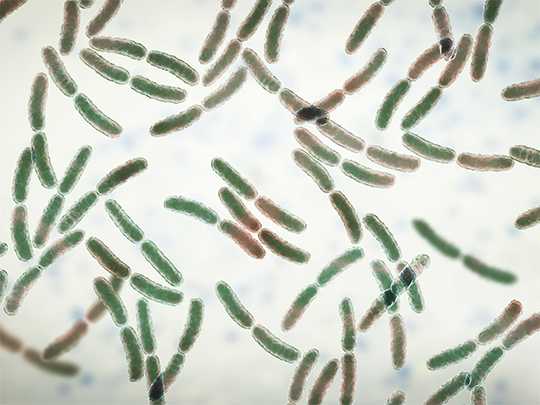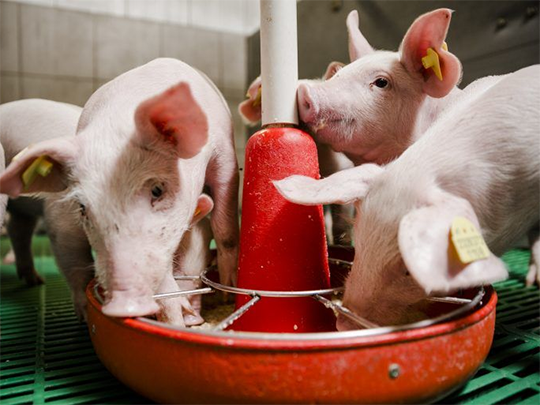Improving intestinal resilience with phytogenics, a promising way - part 2
After part one giving you first insights into the so called “Quorum sensing” of bacteria, and PFAs being a crucial tool to interfere with, we´d like to follow up this article with the importance of a resilient intestinal integrity and how to strengthen the intestinal barrier. Of course its again the PFAs that play an important role here.

Gut integrity
As a thin layer of epithelial cells only forms the intestinal epithelium, it is highly vulnerable. Disruption of intestinal integrity leads to a 'leaky gut' which is determined by an increased permeability to toxic substances and/or pathogens, thus burdening the immune system and reducing performance.
However, impairment of intestinal integrity is not only caused by microbial pathogens. Several in-feed antigens or products of the microbial protein metabolism (ammonia) also cause inflammatory processes in the host's intestines in response to its immune system.

The defensive measures taken by the intestinal cells, such as inflammation to control and destroy the toxic compounds, lead to the formation of free radicals, which damage the intestinal cell barrier. The host's intestinal barrier is supported because various phytogenic additives have antioxidant and anti-inflammatory properties – either directly by intercepting free radicals or indirectly by upregulating the expression of antioxidant and anti-inflammatory genes and enzymes.
Accordingly, Müller et al. (2012) showed increased antioxidative capacity in the jejunum and liver of piglets when essential oils of oregano, rosemary, and thyme were added to the feed. To sum up, PFAs can induce xenobiotic enzyme systems, thus improving the body's defense against harmful free radicals, toxins, and antigens, hence increasing the health status of the piglet.

The ultimate goal — to protect the intestinal barrier
A disturbed and thus permeable intestinal barrier can no longer prevent bacterial toxins or antigens from penetrating. The consequences are inflammation, malabsorption, diarrhea, reduced growth, and impaired performance. The first goal must be to strengthen this barrier.

In this regard, a study revealed a reduced apparent permeability for the macromolecular FITC-4kDa dextran marker by 69% in the distal small intestine of piglets (60 animals/treatment) after feeding a pure, specific plant-based phytogenic product for 14 days post-weaning compared to the control diet (Figure 2). These study results reinforce the claim that PFA beneficially affect piglets' health by directly strengthening intestinal integrity, especially in the earlier period after weaning – one of the critical times in the piglet's life.
Conclusion
Reducing bacterial pathogenicity and supporting intestinal integrity, and thus animals' resilience, means maintaining performance. Undoubtedly, novel strategies must be implemented to support animals reared under stressful and challenging conditions.
The use of well-formulated phytogenic substances represents a relevant strategy in facing the challenges of modern animal production. Apart from their proven efficacy and beneficial effects on digestibility, nutrient utilization, and intestinal resilience, they are natural and safe.

Anja Keiner
After her scientific studies dealing with the effect of phytogenic substances on piglets’ health and performance at the Justus-Liebig university in Germany, Anja was eager to start her professional career with Delacon. Her experience in sales is an important backbone for the previous role as Product Manager Swine, but also for her current position as Global Technical Manager Swine and Poultry.

Manu De Laet
Manu De Laet graduated in 2009 as a bio-engineer at the University of Leuven, Belgium. He has a master’s degree in animal production. After earning valuable experience with phytogenics, Manu started working for Delacon as Global Technical Manager Poultry in September 2018. He is now specialized in nutrition and the effect of phytogenics on digestibility.










